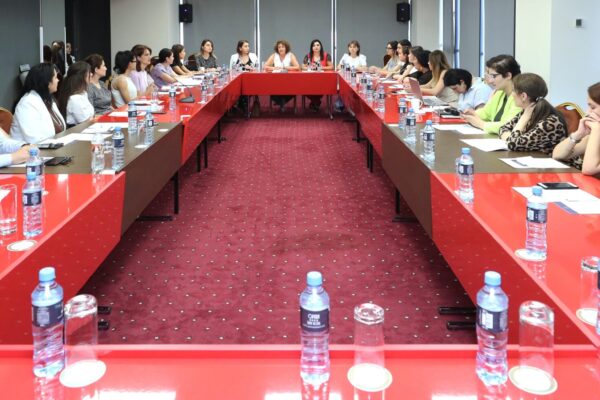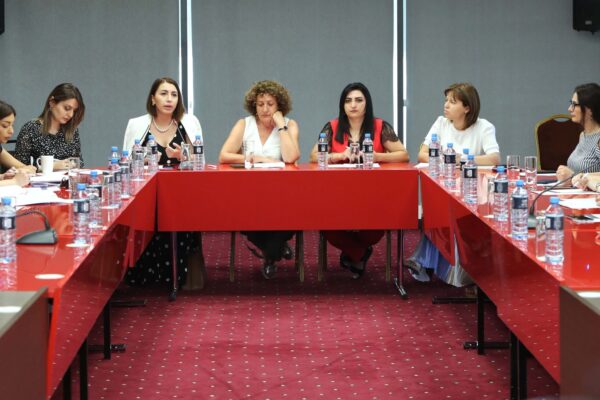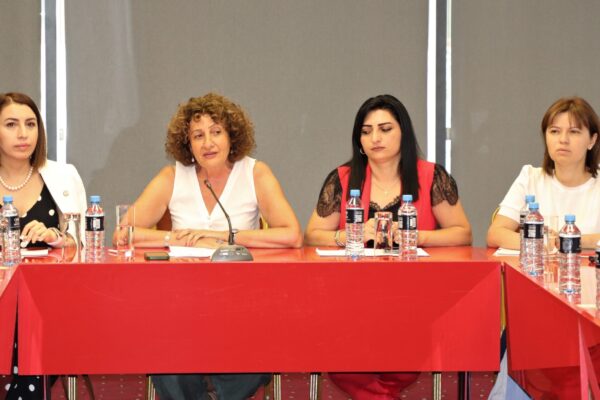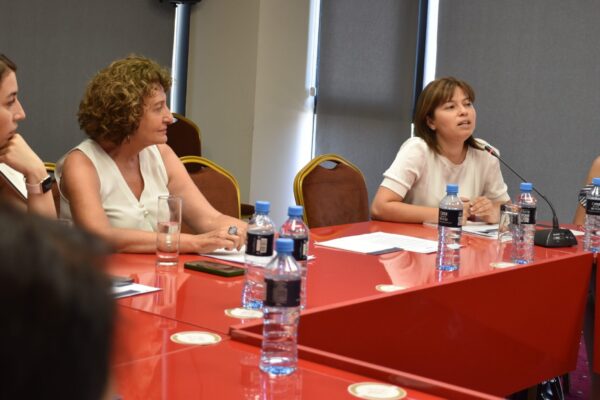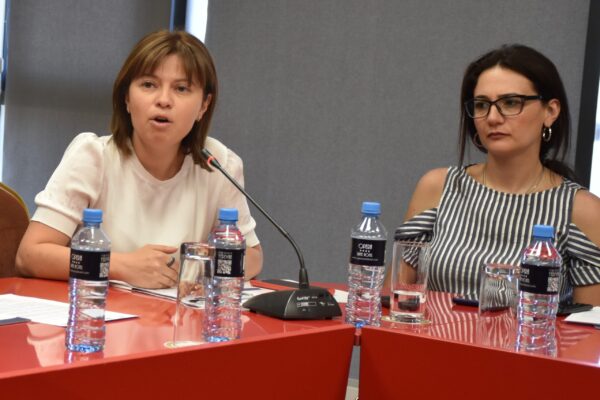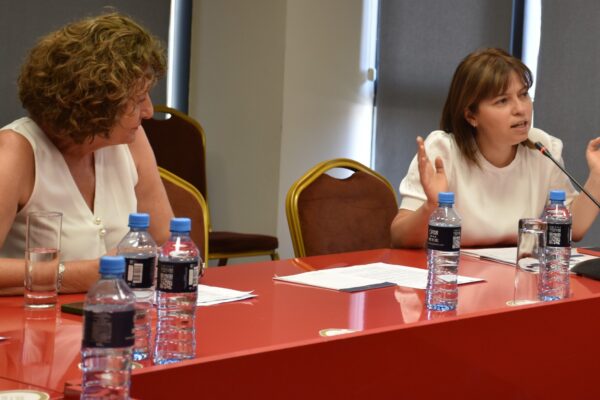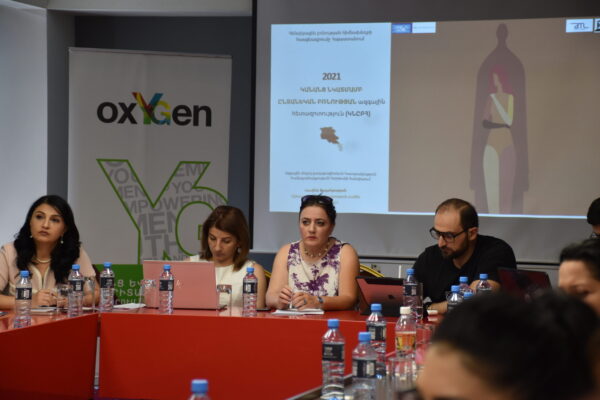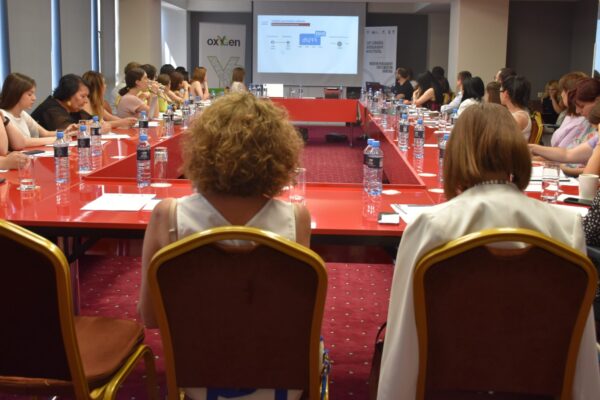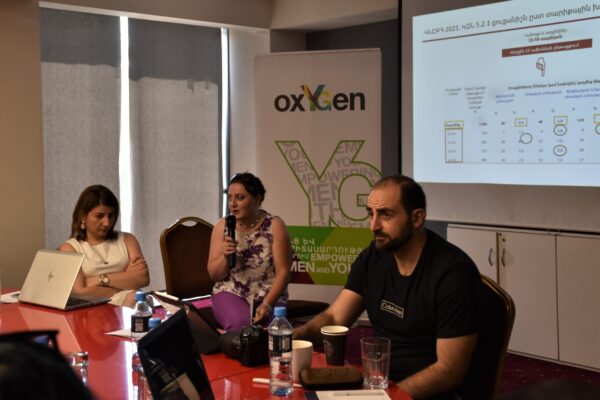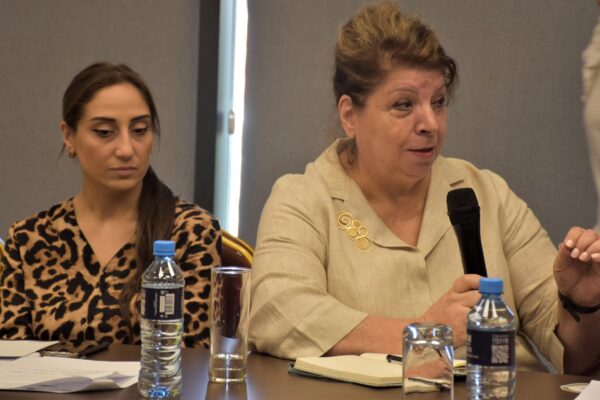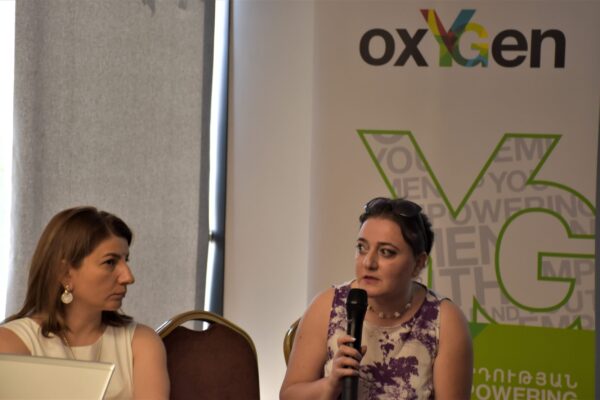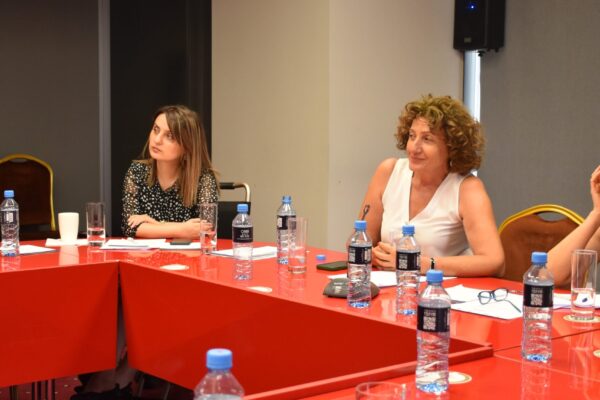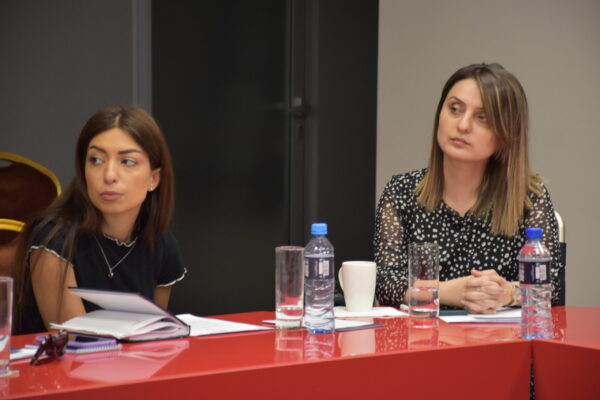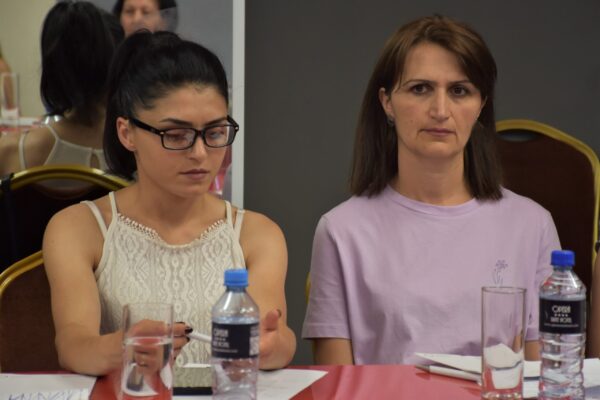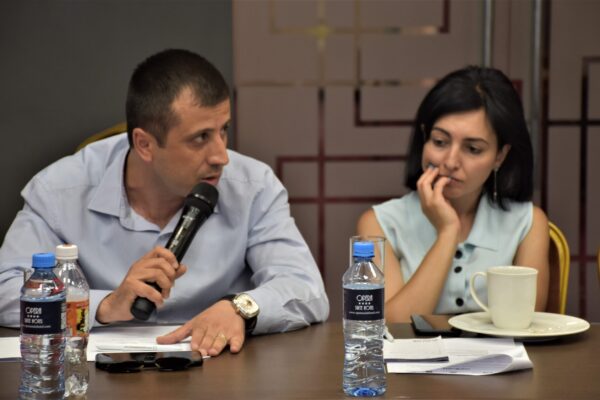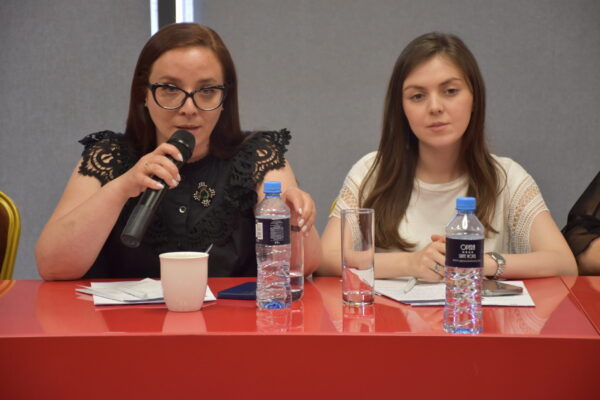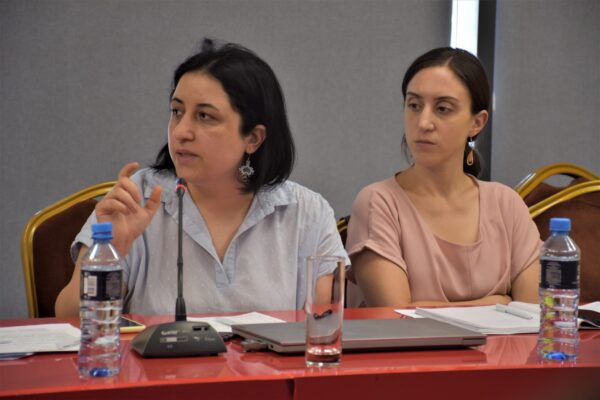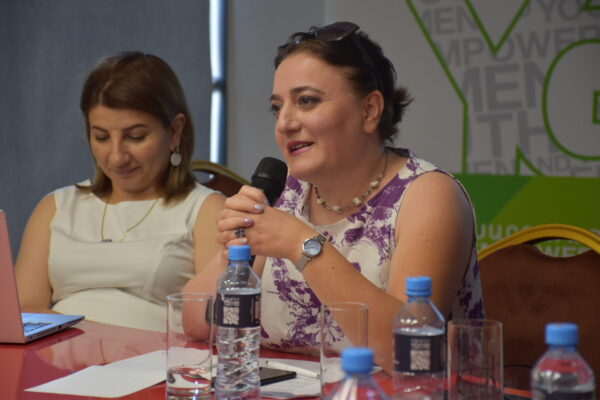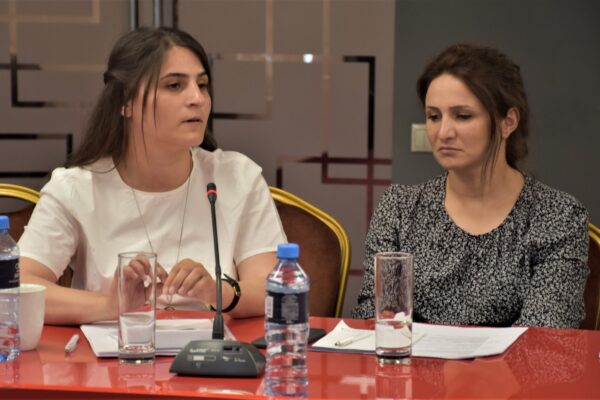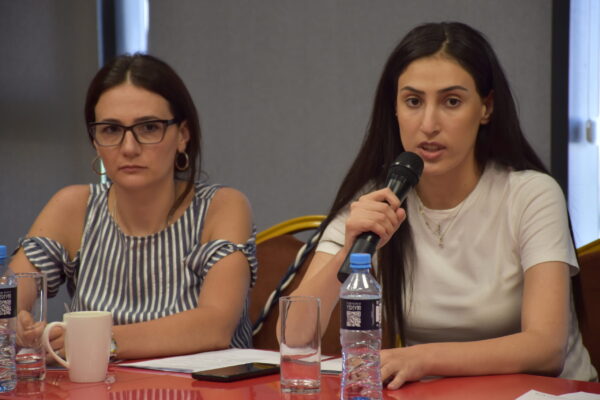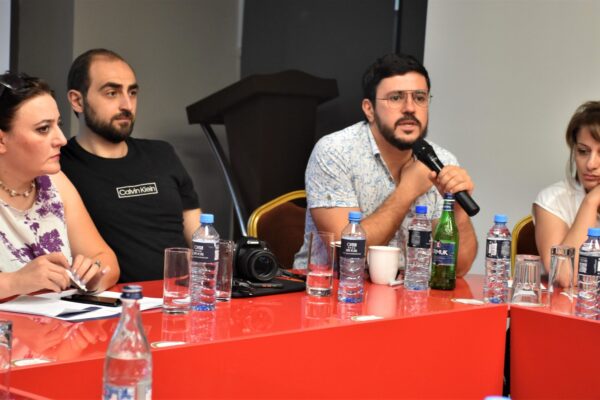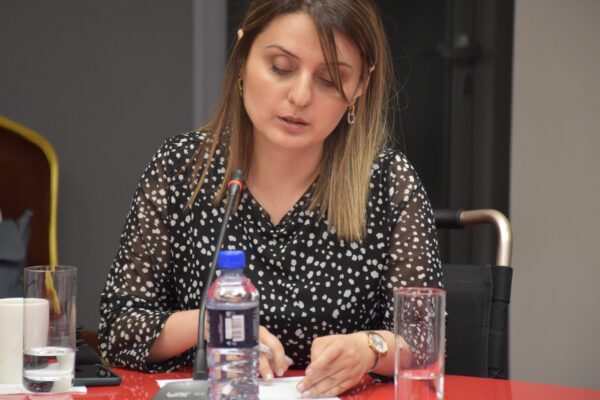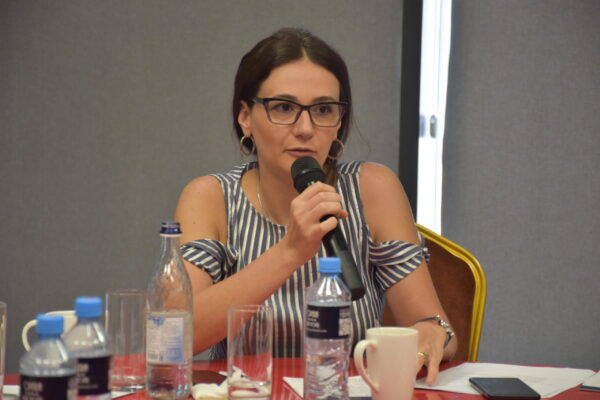
In July 21, a regular meeting of the National Assembly and the Civil Society Cooperation Platform took place with the key focus on addressing gender-based violence in Armenia, attended by the Parliamentarians and experts, representatives of the Government, HRD Office, international community, civil society organizations, gender experts and lawyers.
In her keynote speech, Margarita Hakobyan, Executive Director of the OxYGen Foundation, highlighted the purpose of the gathering to discuss domestic violence statistics in Armenia, state programs aimed at the issue, as well as to ensure that public organizations functioning in the area, contribute to the process by making recommendations on prevention of domestic violence, rapid response to incidents and introduction of effective prevention mechanisms.
Taguhi Tovmasyan, the Chairperson of the National Assembly Standing Committee on Protection of Human Rights and Public Affairs, expressed her gratitude for the initiative and highlighted the role of the platform in the collaboration between civil society and Parliamentarians, stating: “We are about to discuss a crucial yet a complex issue, since for years we have been talking about gender-based violence, domestic violence with a very little or progress, and the key to this is that women themselves most often either avoid to go to law enforcement bodies, making it even more difficult to reveal and find out what has happened in reality. It is our task to understand what alleyways should be or can be employed to ensure necessary impact for resolving this problem. Notwithstanding this, we should double our efforts as we have no right to permit the existence of women in the twenty-first century subjected to violence. Our efforts should, none the less, be doubled, as we cannot afford to have women in the twenty-first century undergo violence.” Ms. Tovmasyan mentioned about the draft legislative initiative she drafted by the recommendation of the Coalition to Stop Violence against Women, which stipulated state duty exemptions for women subjected to domestic violence, who’d wish to file a suit with the court. “The citizen who was subjected violence should be entitled to court protection with no additional burden. I believe this is a rather important initiative and I hope will get positive response from the parliament,” she said.
Kristinne Grigoryan, RA Human Rights Defender, described the HRDO activities in the fight against domestic violence. She underscored the importance of prevention and mentioned several consequent recommendations, particularly Criminal Code reform to specify a more targeted and comprehensive description of domestic violence as a crime. The Defender of the Human Rights, presented, inter alia, proposals on organizing educational and awareness measures. Ms. Grigoryan put in the spotlight particularly active participation of women in law enforcement systems, they active engagement as a guarantee for adequate response to the incidents of domestic violence.
Zaruhi Batoyan, MP, member of the NA Standing Committee on Labor and Social Affairs, addressed the bill of Domestic Violence Law and amendments to related laws drafted by her colleague MPs and herself. “Here we will indeed engage in long talk about what we need to do, since this is a multifaceted issue related to various areas, and everyone had his own responsibility to act, starting from mass media, the Police, education etc. However, as an MP, I see myself first place in legislative amendments, moreover, I believe they underlie all these, since our experience comes to prove that if there is no binding obligation, or statutory prohibition or incentive, it may take much longer,” stated Ms. Batoyan, adding that it was not just women’s or a narrow domestic issue, but rather one to be viewed at a much larger specter of influence. “Everything is connected, and if we are to have a strong society and a state, we should work to recuperate the very cells as well.”
Tatevik Stepanyan, Deputy Minister of Labor and Social Affairs of the Republic of Armenia, presented a broader scope of policies and activities undertaken by the Ministry to address the issue. “The problems contain replete of layers nurtured with stereotypes, especially social, for years, and therefore, one, two, three, four years is not enough to get rid of the latter. We have a lot to do together,” noted Ms. Stepanyan, highlighting the role of civil society in particular in the policy implementation stage. Talking about the provision of grants to regional shelters for extending different types (social, psychological, legal etc.) of support to persons subjected to domestic violence, she addressed the services delegated by the Ministry, as well as the financial aid program. In addition, she mentioned that last year 1516 beneficiaries made use of all delegated services, of which 160 – in the shelters.
Going on, Ms. Stepanyan mentioned also about the umbrella social protection strategy being drafted by the Ministry, whereby gender and disability issues were considered crosscutting topics applicable to the society at large. “The actions deriving from the umbrella strategy will ensure adequate response, and it is my firm belief in addition to the experience we gained last year from a pilot project with partner organizations, that we should develop along with the protection; an economically self-reliant citizen is fully capable of protecting himself. Hence, in this area, and as an authorized body in charge of women issues, we are obligated to develop women’s social-economic capacities, and the women’s accelerator we’ve launched with the Ministry of Economy, co-financed by the UN Development Programme, will come to help us do that.”
The Head of Labor Statistics Division of the RA Statistical Committee Lusine Kalantaryan presented the findings of the research on Domestic Violence against Women conducted in 2021.
See the article on research findings here.
Full report here.
Representatives of the civil society attending the meeting, talked about the issues they identified in terms of violence, fast response to cases of violence and effective prevention mechanisms, making their recommendations for improvement
The event was organized within the framework of the project “Modern Parliament for a Modern Armenia.” The project is implemented by the UNDP in cooperation with the RA National Assembly and with the financial support of the United Kingdom’s “Good Governance Fund” and the Government of Sweden.
To read more on previous meetings of the NA-CSC platform, here.

